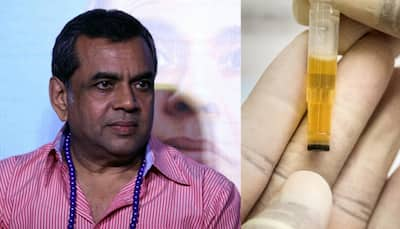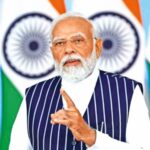Veteran actor Paresh Rawal recently sparked widespread debate after claiming that drinking his own urine helped heal a knee injury. In a media interview, Rawal said, “I sipped my urine like beer first thing in the morning. I did it for 15 days, and when the X-ray reports came in, the doctor was surprised.”
However, leading health experts have strongly cautioned against such practices, asserting that there is no scientific evidence to support urine therapy as a legitimate treatment for any medical condition.
“As an oncologist, I must emphasise that while anecdotal experiences like Paresh Rawal’s are fascinating, they should not be mistaken for medical advice,” said Dr. Abhishek Shankar, Assistant Professor at AIIMS Delhi’s Cancer Hospital. “There is no credible data to prove urine therapy cures musculoskeletal injuries, cancer, or any disease.”
Urine therapy, or Urophagia, is an ancient practice that involves drinking one’s own urine. While some traditional texts and anecdotal reports claim benefits for asthma, allergies, indigestion, and even cancer, modern science offers no robust evidence to support these claims.
Dr. Rajeev Jayadevan from Kerala State IMA added, “Despite progress in science and easy access to medical care, it’s unfortunate that some still believe in these shortcuts. Drinking urine doesn’t cure any health issues. This myth has been debunked multiple times.”
Medical experts further warn that urine contains waste products and bacteria, and ingesting it can lead to infections, electrolyte imbalance, or even dehydration. “Urine is a filtered waste product. Reintroducing it into the body can delay proper treatment and potentially cause more harm than good,” said Dr. Charudatt Vaity, a Mumbai-based intensivist.
While Paresh Rawal isn’t the first celebrity to endorse urine therapy — with British survivalist Bear Grylls and Mexican boxer Juan Manuel Márquez also known for similar claims — doctors insist that healing from injuries relies on rest, nutrition, and evidence-based care, not unproven remedies.
“Recovery is a multi-factor process. It’s vital that the public rely on facts and real science, not viral claims or myths,” Dr. Jayadevan concluded.
The bottom line? Health professionals urge everyone to avoid unverified treatments and consult trained medical practitioners for reliable, effective care.
(With IANS inputs)
Stay informed on all the , real-time updates, and follow all the important headlines in and on Zee News.








